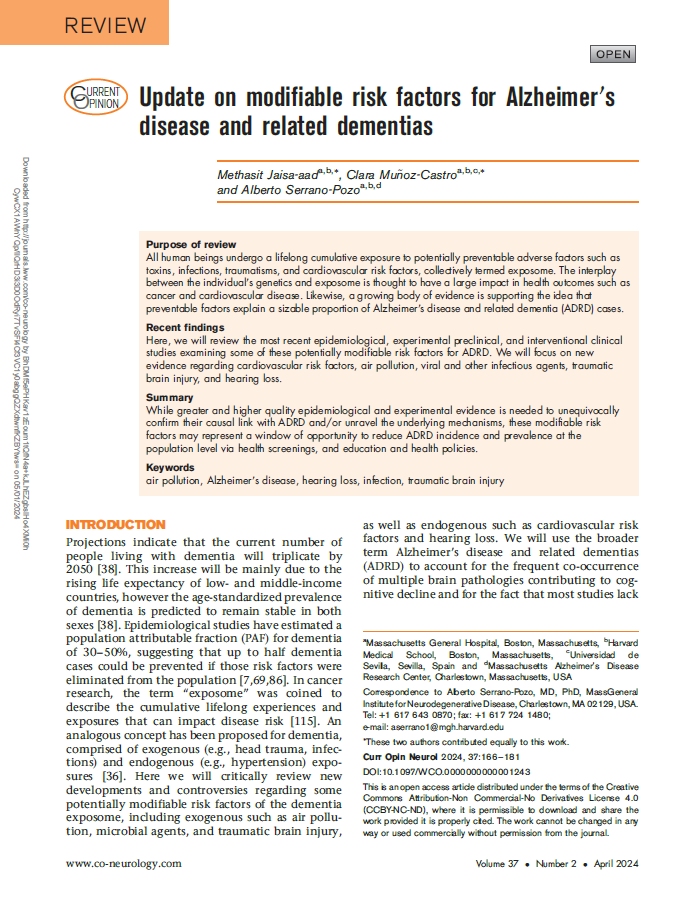Update on modifiable risk factors for Alzheimer's disease and related dementias
April 2024
Abstract
Purpose of review
All human beings undergo a lifelong cumulative exposure to potentially preventable adverse factors such as toxins, infections, traumatisms, and cardiovascular risk factors, collectively termed exposome. The interplay between the individual's genetics and exposome is thought to have a large impact in health outcomes such as cancer and cardiovascular disease. Likewise, a growing body of evidence is supporting the idea that preventable factors explain a sizable proportion of Alzheimer's disease and related dementia (ADRD) cases.
Recent findings
Here, we will review the most recent epidemiological, experimental preclinical, and interventional clinical studies examining some of these potentially modifiable risk factors for ADRD. We will focus on new evidence regarding cardiovascular risk factors, air pollution, viral and other infectious agents, traumatic brain injury, and hearing loss.
Summary
While greater and higher quality epidemiological and experimental evidence is needed to unequivocally confirm their causal link with ADRD and/or unravel the underlying mechanisms, these modifiable risk factors may represent a window of opportunity to reduce ADRD incidence and prevalence at the population level via health screenings, and education and health policies.

